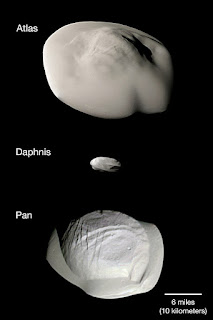 |
| Bohr_model_Hydrogen.JPG: Renjishino1derivative work: Asiela / CC BY (https://creativecommons.org/licenses/by/3.0) |
Why do astronomers care about hydrogen? Astronomers care about hydrogen because it makes up 90% of matter (by number) in the Universe. By mass, the percentage is about 75%. Helium comes in second. To understand our Universe, we must look at hydrogen! Stars are primarily made up of hydrogen. The space between stars is primarily hydrogen. Stars form out of dense molecular hydrogen clouds. When stars expel their gas back out into space, it starts out as ionized hydrogen. Hydrogen is simply everywhere!
Hydrogen will always hold a special place in my heart. I spent five years as a doctoral student studying neutral hydrogen in our galaxy and wrote this 200-page book, earning my Ph.D. I may be the only one who ever reads that book! It's some great bedtime reading if you are suffering insomnia.
Anyway, hydrogen is everywhere, so it's important for us to know what it is and understand how it works in space. If we ignore hydrogen, our understanding of the cosmos is severely lacking!










